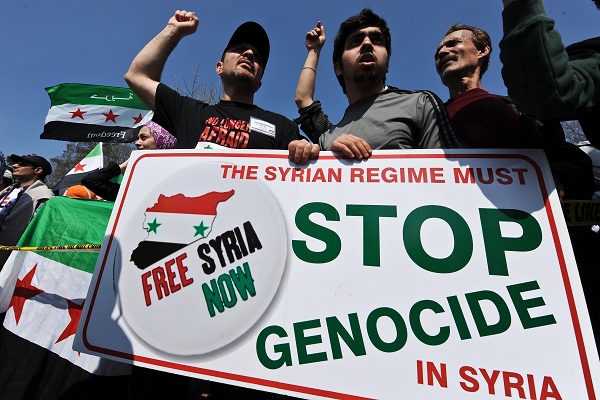Perhaps Cohen doesn’t know much about the Middle East, but there really were, on all sides, high hopes for Syria in the few years after Bashar al-Assad’s rise to power: indeed, the Western media dubbed the period the “Damascus Spring”. I can personally vouch for the accuracy of Lonely Planet’s identification of “a feeling of optimism in the capital” around that time. It’s easy to imply, as Cohen does, that writing about gallery openings and new hotels is a pernicious insult when placed beside the murderous violence we are now witnessing, but then hindsight has always been a seductive tool.
Where to begin? As Freedom House says, but writers for Lonely Planet and the Rough Guide do not, the first six months of Bashar Assad’s presidency did indeed feature ‘the release of political prisoners, the return of exiled dissidents, and open discussion of the country’s problems’. In ‘February 2001, however, the regime abruptly halted this so-called Damascus Spring. Leading reformists were arrested and sentenced to lengthy prison terms, while others faced constant surveillance and intimidation by the secret police. Economic reform fell by the wayside, and Syria under Bashar al-Assad proved resistant to political change’. But then I don’t need to go into all of that. Nor do I need to discuss the police state, Assad’s decision to funnel jihadis into Iraq to murder thousands, and the assassination of Rafiq Hariri. We can also dispense with ‘the seductive tool’ of hindsight. I can settle my dispute with Teller simply by going to Lonely Planet’s website and looking at what it says about Bashar Assad’s rule now, in August 2012, after all the massacres, murders and rapes. Here it is in full.Following the death of Assad senior, his son Bashar acceded to power. A new government was formed in December 2001 with a mandate to push forward political, economic and administrative reforms. This has proved a challenge, particularly when it comes to reforming the country’s unwieldy bureaucracy, many members of which have been recruited due to their political contacts rather than their level of competence. As a result, change isn’t occurring as swiftly as many observers had hoped. Still, you’ve got to hand it to Assad junior – he’s trying.
Improving the country’s relations with the international community is proving even trickier. Publicly branded a ‘rogue state’ by the US president, George W Bush, Syria has recently been forced to withdraw its army and intelligence personnel from Lebanon. It has also been criticised by the US for its support of Hezbollah and for allegedly turning a blind eye to the movements of Iraqi insurgents. Though making a gallant effort to stand firm in the face of the superpower’s displeasure, Syria is looking increasingly isolated on the world’s political stage.
You most certainly do have ‘to hand it to Assad Junior’. Whatever he does, he can still find unprincipled travel writers willing to praise his ‘gallant’ efforts. It is not hard to check Lonely Planet’s website, before writing about Lonely Planet, but it appears too much to ask of Mr Teller. Unburdened by the need to research he babbles. Strangely his babbling suits his employers’ interests very well.






Comments